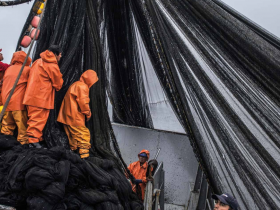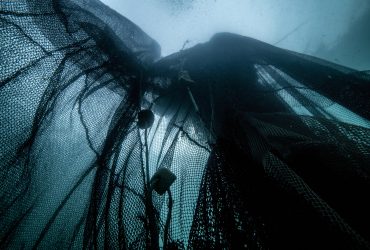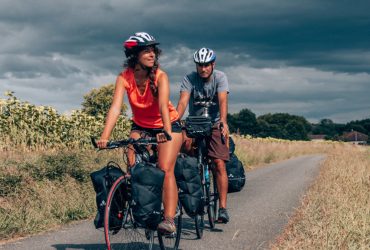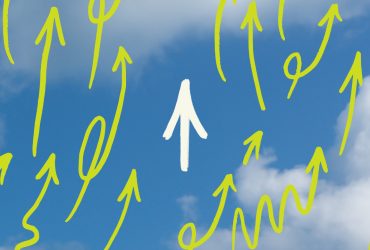A mountain guide in Chamonix, American Zoe Hart is also involved locally through the Mont-Blanc 2.0 association. The aim is to set up an alternative energy production system called "citizen energy".
Zoe Hart has been living in Chamonix for 20 years. Born in the suburbs of New Jersey, in the United States, this mountain guide broadened her skills in environmental protection after completing a master's degree in sustainable development and environmental management at Harvard. "I've had this ecological awareness for a long time," she explains. "In my profession, I can see the impact of climate change on melting glaciers, for example. We're also more aware of temperature changes, with colder winters and hotter summers. It's also my children who have made me realize how important it is to leave them a planet in better shape. I took them for a walk on the glaciers when they were 2 or 3 years old, because we don't know if these natural sites will still be there in the future".
In order to change things on her own scale, Zoe got involved in the association Mont-Blanc 2.0 which aims to set up a project around citizen energy. "The principle behind citizen energy is the collective installation of solar panels on the best exposed roofs in the valley, whether they belong to local authorities, businesses or private individuals," explains Zoe. Today, a million European citizens are involved in the citizen energy movement, built on the model of village power plants. In France, more than 300 citizens' renewable energy cooperatives have already seen the light of day. Patagonia (who has worked with Zoe for several years) highlighted these citizen initiatives in her film "We the Power" unveiled last April, which you can watch below in full.
"Citizen energy is a great way to leave a long-term impact," adds Zoe. "It decentralizes energy, it multiplies the number of small producers and it saves us from having to deal with the big electricity production companies. Unlike some countries like Canada, in France we have the opportunity to sell electricity as individuals, so we have to take advantage of that. Another advantage is that you don't have to wait for political decisions to launch such an initiative. It comes directly from the citizens themselves. All this helps to speed up the energy transition.
"Obviously, it's a process that takes time. Initially, we started working with the town of Chamonix, which also wanted to set up this initiative. We worked in parallel with the Town Hall, but the municipal elections changed things. That's when we decided to set up this Mont-Blanc 2.0 association last September."
"For the moment, we haven't put any panels on the roofs yet, because we're working mainly on the administrative part of the project, which takes quite a long time to set up. We're all volunteers in the association, so we have to find time outside our professional activities and our families... We hope to install the first photovoltaic panels on the roofs in the spring. But before that, we need to find the roofs in question, mobilize local savers ready to invest in the project, find suppliers and obtain bank loans. We're working with Toits Des Cimes which is the name of the citizens' cooperative for the production of renewable energy in the Chamonix Valley."
While the system comes from private individuals, businesses are also being approached. "For them, it's a profitable investment, because in the long term they can make money by producing their own electricity after placing these panels on their roofs, and selling the surplus," explains Zoé. "But you need to take a long-term view, because we're talking about profitability over 15 or 20 years. That's what the Compagnie du Mont-Blanc is looking at right now, to see what opportunities there are."
If you want to know more about citizen energy, Patagonia offers on its website a page dedicated to this movement. And if you want to get involved on your side, go to here to find out how to join, invest in or create a renewable energy cooperative.










